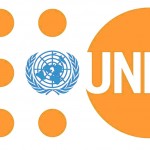By Asma’u Ahmad
The United Nations Population Fund (UNFPA) and the Federal Ministry of Women Affairs and Social Development are collaborating to leverage strategic partnerships to boost reproductive health, rights of women and girls in Northern Nigeria.
A statement issued by UNFPA Nigeria made available to newsmen in Abuja, said the partnership was to create critical synergies between UNFPA and government programmes.
The statement quoted United Nations Under-Secretary-General and Executive Director of UNFPA, Dr. Babatunde Osotimehin as saying that the aim was to ensure that government had all the support it needs to overcome overwhelming challenges.
He said the collaboration was also to redouble efforts to ensure that rights of women and adolescent girls to access healthcare was protected, adding that as girls grow into adolescents, gender disparity widens.
According to him, from the age of 10, many face the socio-cultural norms of their societies.
“These include risks of violence, child marriage, early childbearing, child labour, Female Genital Mutilation and other harmful practices that threaten their lives and well-being, while many cannot go to school or fulfil their potential.

“About one Nigerian woman dies every 10 minutes from pregnancy related conditions. Deaths could have been prevented if women and girls have access to education and reproductive health services, including family planning,” he said.
Dr. Osotimehin said risk of death is heightened in humanitarian crises that displace populations and undermine community social support mechanisms, limiting access to health facilities and workers to take care of women’s and girls’ special needs.
According to him, in Borno, Yobe and Adamawa, the three states most affected by the insurgency, it is estimated that 53 per cent of Internally Displaced persons are women and girls.
The executive director said of the 53 percent, about 1.73 million were women of childbearing age, with 276, 000 pregnancies expected in 2017.
He also emphasised the urgent need to protect the reproductive health of these women and girls affected by insurgency in the North East.
Mr. Osotimehin and Aisha Alhassan both visited the Internally Displaced Persons’ (IDPs) camp in Dalori, Borno State.
Osotimehin told the IDPs that UNFPA remains committed to the full realisation of the sexual and reproductive health and rights of all women and girls in all conditions at all times.
They also met with some traditional rulers as part of efforts to ensure success of the exercise.
They include Shehu of Borno, Alhaji Abubakar Garbai El-Kanemi, who reiterated his commitment to use his position to protect women and girls from gender-based violence.
The Emir of Kano, Muhammad Sanusi II, was also honoured as the Grand Patron for Women and Children’s Health by the UNFPA.




